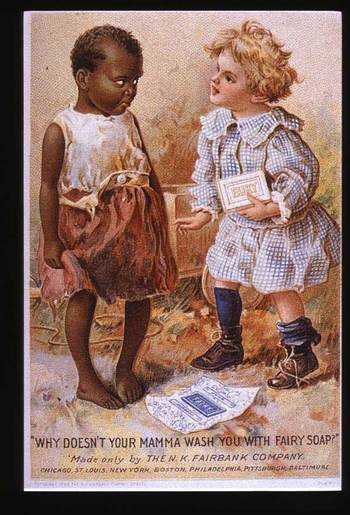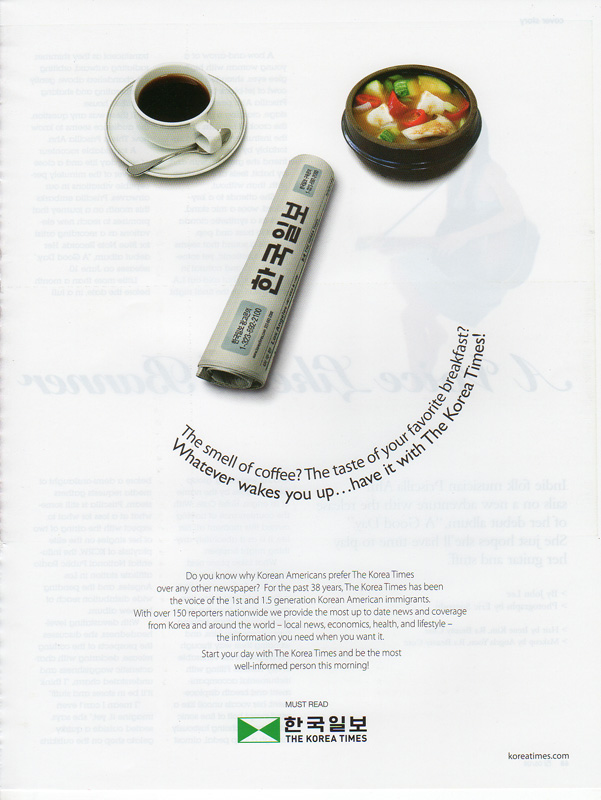Ben O. forwarded this ad for Fairy Soap (found here). It plays into the idea that African Americans are dirty and either lazy or stupid (since they don’t bother to wash their children), but that enlightened, kindly, clean whites can help them. It would make a good accompaniment to the chapter “Soft-Soaping Empire: Commodity Racism and Imperial Advertising” in Imperial Leather: Race, Gender, and Sexuality in the Colonial Contest, by Anne McClintock.
UPDATE: In a comment, Brendon proposed a reading I didn’t think of:
The second ad is troubling, but my interpretation of it wasn’t that the ad was implying that African Americans are dirty – it’s implying that the young white girl believes the black girl is covered in dirt, which is the only reason why the black girl doesn’t have the white skin she does. It’s about the ‘folly’ of youth – this girl isn’t versed in the discourse of racial difference yet!
Of course, Eric points out that the “cutesy” element is undermined by the fact that the ad was made by adults who, unless we’re both totally wrong, didn’t hold such an “innocent” view of the differences between African Americans and Whites.
Also, as a commenter pointed out, given changes in hairstyles and dress for children over time, it may be those are boys, not girls.
NEW (July ’10)! Monica Y. sent along another example, this one an ad for Vinolia Soap:





